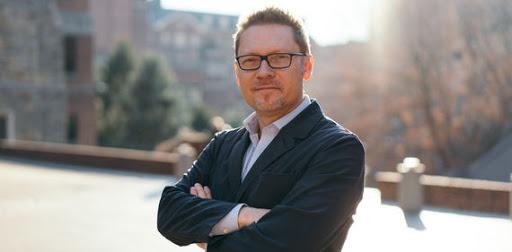Government department chair Charles King received the 2020 Francis Parkman Prize for his book about a small group of cultural anthropologists working at the beginning of the 20th century.
“Gods of the Upper Air” examines how research conducted by Margaret Mead, Zora Neale Hurston and other students of Franz Boas rejected the conventional wisdom of their contemporaries that race, sex and gender are fixed and biologically predetermined. King published the book in August 2019 to wide critical acclaim, culminating in the Parkman Prize this June.

King said modern changes in societal perceptions of identity inspired his research into the subject of anthropology.
“Some years ago, I think it occurred to me that we were undergoing a sea change in contemporary society not just in the United States, but in other countries around the world, in how large numbers of people thought of issues like race or gender or sexuality — seeing these things, as any undergraduate learns in an ‘Intro to Sociology’ class, as socially constructed identities,” King said in an interview with The Hoya. “And I wanted to trace where that idea came from because it became a very powerful idea in our society.”
“Gods of the Upper Air” captures the prescience of Boas and his students, according to University of California, Berkeley psychology professor Alison Gopnik in a review for The Atlantic.
“[King] makes the case for anthropology in a thoughtful, deeply intelligent, and immensely readable and entertaining way,” Gopnik wrote. “The old distinctions between biology and culture, nature and nurture, just don’t work. Today, it’s clear that culture is our nature, and the ability to change is our most important innate trait.”
The Francis Parkman Prize, named after the 19th-century historian, is awarded annually to the best nonfiction work of history on an American theme. Recipients of the prize also receive $2,000. The prize has been issued since 1957 by the Society of American Historians, based at Columbia University.
Although the book focuses on anthropologists, King said “Gods of the Upper Air” is foremost a historical account because it focuses on documenting changes in how people see the world around them.
“I’m a social scientist,” King said. “I write history books, and this really is a history book or a biography of a group of people. It’s not a work of anthropology itself, but it’s about an anthropological way of seeing the world that I think in turn transformed, in general, our way of seeing the world.”
Andrew Bickford, an assistant professor in the anthropology department, praised “Gods of the Upper Air” for its contribution to the field of anthropology and expressed appreciation for King’s work outside the field of government.
“All disciplines need to know their history, and Prof. King has done a wonderful service for anthropology and the social sciences in general by bringing Boas’ and his students’ commitment to combating racism and oppression – and the obstacles they faced in doing so – so vividly to life,” Bickford wrote in an email to The Hoya. “This is a fantastic and much deserved honor for Prof. King.”
While King’s book is a historical work, Bickford emphasized the relevance of its contents in today’s current social climate.
“What I find most striking in Prof. King’s book – and what he draws out that is often absent from histories of early anthropology – is just how radically imaginative Boas and his students were in their scholarship and in their fight against prevailing understandings and notions of race and identity, and their willingness to confront racism and oppression head-on,” Bickford wrote. “Their radical imagination is something we can continue to draw from and use in today’s struggles.”
Georgetown University played a positive role in helping King foster his own work, according to King.
“I’ve been at Georgetown going on 24 years, and it’s been a really remarkable place to do this kind of work,” King said. “And I’m so pleased that the university is engaging deeply in these questions around race identity, sexuality, gender, with more energy and commitment than I think it’s ever had. So all of that is to the good.”
Besides taking inspiration from colleagues in Georgetown’s anthropology department, King said his wife inspired him and expanded his knowledge of the ways anthropologists think.
“The person I was intellectually closest with in this project is also the person I’m just closest with in life — was my wife,” King said. “She has a Ph.D. in anthropology. She brings to her work a kind of anthropological sensibility. And so being in the same house with her, in a way myself getting to be an anthropologist of an anthropologist, that really helped me see how people who are trained in this field understand the world.”
King hopes that people take Boas, Mead and Hurston’s lead in light of ongoing conversations about race.
“Shift your sense of what the normal thing is, the obvious thing, the commonsensical thing. Throw that up in the air, make that look really weird,” King said. “Make your sense of the normal look weird for a moment, and then as soon as you do that — ah. Then the possibilities of social change suddenly open up.”






















Linnea • Jun 26, 2020 at 8:49 pm
My mom says you did such a good job!